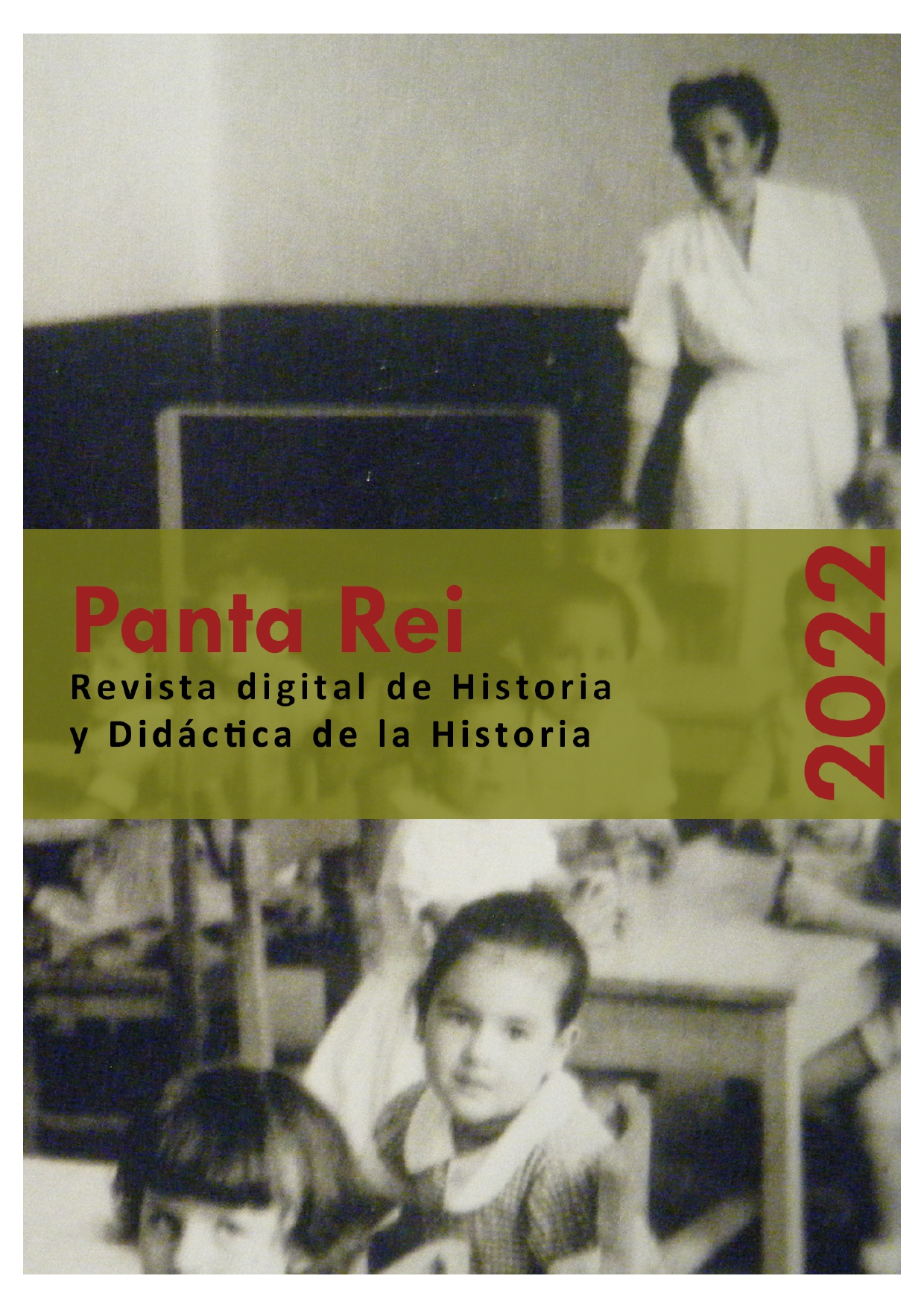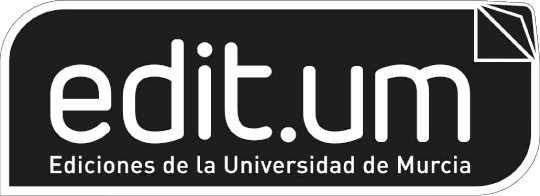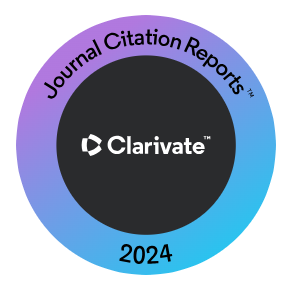The construction of historical knowledge about local heritage: comparison between epistemological theories and competences of students
Supporting Agencies
- Fundación Séneca, Agencia de Ciencia y Tecnología de la Región de Murcia, por el contrato predoctoral (19811/FPI/15) y sus sucesivas ayudas a estancias en centros de investigación externos, de los que disfrutó la primera autora
- Fondos Nacionales portugueses a través de la FCT – Fundação para a Ciência e a Tecnologia, en el ámbito del proyecto UIDB/04059/2020.
Abstract
In the framework of the defence of history teaching based on historical thinking, more attention has apparently been focused on the application of competences than on the epistemological dimension. Under this premise, in this study we aimed at comparing the epistemological theories of Portuguese students with the level of competence demonstrated by the same pupils. We conducted a mixed-model study involving 43 Portuguese students aged 13-14, using two data collection instruments and combining the analysis of quantitative and qualitative information. The results show epistemological theories with higher scores than the application of competences, which are also presented as unrelated. We conclude that there is a need to systematise broader models of historical thinking and a mixed work on epistemological theories and the application of competences in the lessons.
Downloads
-
Abstract1117
-
PDF (Español (España))683
-
EPUB (Español (España))406
References
Afflerbach, P. y VanSledright, B. (2001). Hath! Doth! What? Middle Graders Reading Innovative History Text. Journal of Adolescent & Adult Literacy, 44(8), 696–707. https://af.booksc.eu/book/45314914/ffad57
Albornoz, N. y Sebastián, C. (2022). Between school and ethical–political everyday action: a comprehensive framework of the development of historical thinking. Journal of Curriculum Studies. https://doi.org/10.1080/00220272.2021.2018502
Alía, F. (2016). Métodos de investigación histórica. Síntesis.
Alves, R.C. (2011). Aprender história com sentido para a vida: consciência histórica em estudantes brasileiros e portugueses. Tesis doctoral. Universidad de São Paulo.
Aróstegui, J. (1995). La investigación histórica: teoría y método. Crítica.
Ashby, R. (2004). Developing a concept of historical evidence: Students’ ideas about testing singular factual claims. International Journal of Historical Learning, Teaching and Research, 4(2), 44–55. https://www.history.org.uk/publications/categories/304/resource/4858/the-international-journal-volume-4-number-2
Ashby, R. (2011). Understanding historical evidence: teaching and learning challenges. En I. Davies (ed.), Debates in history teaching (pp. 137-147). Routledge.
Ashby, R., Lee, P.J. y Shemilt, D. (2005). Putting principles into practice: Teaching and planning. En M.S. Donovan, y J.D. Bransford (eds.), How Students Learn: History, mathematics, and science in the classroom (pp. 79-178). National Academies Press.
Barca, I. (2004). Os jovens portugueses: ideias em História. Perspectiva, Florianópolis, 22(2), 381-403. https://doi.org/10.5007/%25x
Barton, K.C. (1997). ‘I just kinda know”: Elementary students’ ideas about historical evidence. Theory and Research in Social Education, 25(4), 407–430. https://doi.org/10.1080/00933104.1997.10505821
Bisquerra, R. (coord.) (2016). Metodología de la investigación educativa. Editorial La Muralla.
Carretero, M., López, C., González, M.F. y Rodríguez-Moneo, M. (2012). Students Historical Narratives and Concepts. En M. Carretero, M. Asensio y M. Rodríguez-Moneo (eds.), History Education and the Construction of National Identities (pp. 153-170). International Review of History Education
Cooper, H. (2002). History in the Early Years. Routledge Falmer.
Cooper, H. (2012). History 5–11: A guide for teachers. Routledge.
Duquette, C. (2015). Relating Historical Consciousness to Historical Thinking Through Assessment. En K. Ercikan y P. Seixas (eds.), New Directions in Assessing Historical Thinking (pp. 51-63). Routledge.
Elder, L. y Paul, R. (2002). El arte de formular preguntas esenciales. Foundation for Critical Thinking.
Fronza, M. (2014). As concepçoes de verdade histórica e intersubjetividade no conhecimento histórico de jovens estudantes do ensino médio. Revista Tempo e Argumento, 6(11), 299-326. https://doi.org/10.5965/2175180306112014299
Fuentes, C. (2004). Concepciones de los alumnos sobre la historia. Enseñanza de las ciencias sociales, 3, 75-83. https://raco.cat/index.php/EnsenanzaCS/article/view/126194
Hofer, B.K. (2004). Epistemological Understanding as a Metacognitive Process: Thinking Aloud During Online Searching. Educational Psychologist, 39(1), 43-55. https://doi.org/10.1207/s15326985ep3901_5
Huberman, M. y Miles, M. (2014). Métodos para el manejo y el análisis de datos. En C. Denman y J. Armando (eds.), Por los rincones. Antología de métodos cualitativos en la investigación social (pp. 253-300). El Colegio de Sonora.
Johnston, M., Hipkins, R. y Scheedan, M. (2017). Building epistemic thiking through disciplinary inquiry: Contrasting lessons from history and biology. Curriculum Matters, 13, 80-102. https://doi.org/10.18296/cm.0020
Körber, A. (2021). Historical consciousness, knowledge, and competencies of historical thinking: An integrated model of historical thinking and curricular implications. Historical Encounters, 8(1), 97-119. https://doi.org/10.52289/hej8.107
Lee, P.J. (2005). Putting principles into practice: Understanding history. En M.S. Donovan y J.D. Bransford (eds.), How Students Learn: History, mathematics, and science in the classroom (pp. 31-77). National Academies Press.
Lee, P. y Ashby, R. (2000). Progression in Historical Understanding among Students Ages 7-14. En P.N. Stearns, P. Seixas y S. Wineburg (eds.), Knowing, Teaching and Learning History (pp. 199-223). New York University Press.
Lee, P. y Shemilt, D. (2003). A cafflod, not a cage: Progression and Progression Models in History. Teaching History, 113, 13-23. https://www.history.org.uk/secondary/resource/83/a-scaffold-not-a-cage-progression-and-progressio
López-Torres, E. (2012). Los jóvenes ante su participación ciudadana: opiniones, actuaciones, conocimientos e inquietudes. En N. De Alba, F.F. García y A. Santiesteban (eds.), Educar para la participación ciudadana en la enseñanza de las ciencias sociales (pp. 109- 116). Asociación Universitaria de Profesorado de Didáctica de las Ciencias Sociales.
Maggioni, L. (2010). Studying Epistemic Cognition in the History Classroom: Cases of Teaching and Learning to Think Historically. Tesis doctoral. University of Maryland.
Mathis, C. y Parkes, R. (2020). Historical thinking, epistemic cognition and history teacher education. En C. Berg, y T. Christou (eds.), Palgrave handbook of history and social studies education (pp. 189-212). Palgrave MacMillan.
Martínez, R., Castellanos, M.A. y Chacón, J.C. (2014). Métodos de investigación en Psicología. EOS Universitaria.
Merchán, F.J. (2007). El papel de los alumnos en la clase de historia como agentes de la práctica de la enseñanza. Didáctica de las ciencias experimentales y sociales, 21, 33-51. http://hdl.handle.net/10550/20924
Miguel-Revilla, D., Carril-Merino, T. y Sánchez-Agustí, M. (2021). An Examination of Epistemic Beliefs about History in Initial Teacher Training: A Comparative Analysis between Primary and Secondary Education Prospective Teachers. The Journal of Experimental Education, 89(1), 54-73. https://doi.org/10.1080/00220973.2020.1718059
Miguel-Revilla, D. y Fernández-Portela, J. (2017). Creencias epistemológicas sobre la Geografía y la Historia en la formación inicial del profesorado de Educación Infantil y Primaria. Didáctica de las ciencias experimentales y sociales, 33, 3-20. https://doi.org/10.7203/dces.33.10875
Pereira, Z. (2011). Los diseños de método mixto en la investigación en educación: una experiencia concreta. Revista Electrónica Educare, XV(1), 15-29. https://www.redalyc.org/articulo.oa?id=194118804003
Pinto, H. y Ponce, A.I. (2020). Dar sentido al patrimonio local: ideas de los estudiantes portugueses y españoles sobre historia. Clío. History and History Teaching, 46, 148-162. https://doi.org/10.26754/ojs_clio/clio.2020465328
Ponce, A.I. (2019). Teorías epistemológicas y conocimiento histórico del alumnado: diseño y validación de una prueba. Tesis doctoral. Universidad de Murcia, Universidade do Porto.
Ponce, A.I. y Sánchez-Pérez, N. (2022). Concepciones subyacentes a la construcción del conocimiento: un modelo desde la didáctica de la historia. Revista Española de Pedagogía, 80(282), 269-287. https://doi.org/10.22550/REP80-2-2022-04
Prats, J. y Fernández, R. (2017). ¿Es posible una explicación objetiva sobre la realidad social? Reflexiones básicas e imprescindibles para investigadores noveles. DIDACTICAE, 1, 97-110. https://doi.org/10.1344/did.2017.1.97-110
Reis, A.S. (2021). Operações do pensamento histórico de jovens estudantes: um estudo sobre a concepção de evidencia. Revista Brasileira de História, 41(86), 67-86. https://doi.org/10.1590/1806-93472021v41n86-03
Ricoeur, P. (2004). La memoria, la historia, el olvido. Fondo de Cultura Económica.
Schommer-Aikins, M., Beuchat-Reichardt, M. y Hernández-Pina, F. (2012). Creencias epistemológicas y de aprendizaje en la formación inicial de profesores. Anales de Psicología, 28(2), 465-474. https://doi.org/10.6018/analesps.28.2.125341
Seixas, P. (2017). A Model of Historical Thinking. Educational Philosophy and Theory, 49(6), 593-605. https://doi.org/10.1080/00131857.2015.1101363
Seixas, P. y Morton, T. (2013). The Big Six Historical Thinking Concepts. Nelson Education.
Simão, A.C. (2016). Repensando a evidência histórica na construção do conhecimento histórico. Diálogos, 19(1), 181-189. https://periodicos.uem.br/ojs/index.php/Dialogos/article/view/33808
Smith, B. (2020). The disciplined winds blow in from the West: The forgotten epistemic inheritance of historical thinking. Historical Encounters, 7(3), 21-32. https://www.hej-hermes.net/_files/ugd/f067ea_2058d17f186c48eeb3afbc788eb723fe.pdf
Suárez, M.A. (2012). Concepciones sobre la Historia en Primaria: La epistemología como asunto clave en la formación inicial de maestros. Didáctica de las ciencias experimentales y sociales, 26, 73-92. https://doi.org/10.7203/dces.26.1932
Taber, K.S. (2018). The use of Cronbach’s Alpha when developing and reporting research instruments in science education. Research in Science Education, 48(6), 1273-1296. https://doi.org/10.1007/s11165-016-9602-2
Thorp, R. y Persson A. (2020). On historical thinking and the history educational challenge. Educational Philosophy and Theory, 52, 891-901. https://doi.org/10.1080/00131857.2020.1712550
VanSledright, B. (2015). Assessing for Learning in the History Classroom. En K. Ercikan y P. Seixas (eds.), New Directions in Assessing Historical Thinking (pp. 75- 88). Routledge.
VanSledright, B., Maggioni, L. y Reddy, K. (2011). Preparing Teachers to Teach Historical Thinking? The Interplay Between Professional Development Programs and School-Systems’ Cultures. Annual meeting of the American Educational Research Association, New Orleans.
Voet, M. y De Wever, B. (2016). History teachers’ conceptions of inquiry-based learning, beliefs about the nature of history, and their relation to the classroom context. Teaching and Teacher Education, 55, 57-67. https://doi.org/10.1016/j.tate.2015.12.008
Wiley, J., Griffin, T.D., Steffens, B. y Britt, M.A. (2020). Epistemic beliefs about the value of integrating information across multiple documents in history. Learning and Instruction, 65, 101266. https://doi.org/10.1016/j.learninstruc.2019.101266
Wineburg, S. (2001). Historical Thinking and other Unnatural Acts. Charting the Future of Teaching the Past. Temple University Press.
Wineburg, S. (2016). Why historical thinking is not about history. History News, 71(2), 13–16.
Wineburg, S. y Reisman, A. (2015). Disciplinary literacy in history: A toolkit for digital citizenship. Journal of Adolescent and Adult Literacy, 58(8), 636–639. https://doi.org/10.1002/jaal.410
Yoon, J. (2021). Is historical thinking unnatural? Educational Philosophy and Theory. https://doi.org/10.1080/00131857.2021.1914584
Copyright (c) 2022 Ana Isabel Ponce Gea, Helena Pinto

This work is licensed under a Creative Commons Attribution-ShareAlike 4.0 International License.
All the contents published in this journal are subject to an Attribution-ShareAlike 4.0 International (CC BY-SA 4.0) Creative Commons License. You are free to: Share — copy and redistribute the material in any medium or format, Adapt — remix, transform, and build upon the material, for any purpose, even commercially. Under the following terms:
Attribution — You must give appropriate credit, provide a link to the license, and indicate if changes were made. You may do so in any reasonable manner, but not in any way that suggests the licensor endorses you or your use.
ShareAlike — If you remix, transform, or build upon the material, you must distribute your contributions under the same license as the original.
Full text of the license is available in: Creative Commons License 












